|
by James DeChene
This week in Dover saw the announcement of a 19 bill criminal justice reform package highlighted at a press conference Thursday. While the vast majority of these bills have yet to be introduced, we know several are designed to help those with arrests or records navigate an easier path to employment. One bill involves mandatory expungements for single misdemeanor offenses and for arrests with no conviction if no further offense takes place for 5 years. Another eases licensing requirements for electrical, HVAC and certain other professions requiring professional licensure. The Chamber has been supportive of those efforts in the past, and awaits review of the current language. It was a light week on the Senate side, as much of their business was put on hold due to a significant number of members out sick. We hope they feel better soon are able to make it back to Leg Hall for work. In the House, the National Popular Vote interstate compact passed and now is headed to the Governor for signature. The bill would change how Delaware awards its Electoral College delegates during a Presidential election. Current policy awards Delaware’s three votes to the winner of the popular vote in Delaware. The new proposal would award Delaware’s three votes to the winner of the national popular vote. This process would change once enough states (representing at least 270 electoral votes) agree to participate. Next week we expect the Tobacco to 21 bill (raising the age to purchase tobacco and e-cigarette products to 21) in the Senate. Also, we expect HB47, the bill to revoke the youth and training wage rates related to minimum wage, to be heard in the House Economic Development next Wednesday at 2:30 p.m. If your company would be impacted by this change, I urge you to come and make comment during the hearing to let legislators know how this would impact your business.
0 Comments
by James DeChene
The General Assembly was back in session this week, returning from the Joint Finance Committee. This week in Dover, we saw two bills related to taxes tabled in committee. The first proposed a reduction to the realty transfer tax by 1% and the second would have allowed for itemized deductions in Delaware. Both are on hold for now. Also a bill on the National Popular Vote passed in the Senate. The bill is now headed to the House, and if passed there, it would enter Delaware into an interstate compact that would change how Delaware would award its Electoral College delegates. A new federal court ruling could require companies over 100 to report pay by gender starting as soon as May 31, 2019. For more info on the issue and the ruling, click here. by James DeChene
This year’s “Rich States, Poor States” was released this week, and Delaware checks in at 28th for economic performance, and 36th for economic outlook. Performance is calculated by considering state GDP, non-ag employment numbers and domestic migration. No surprise that we come in high (19th) in migration as we are a retirement destination state due to low property taxes and great beaches. For economic outlook, there are 15 areas considered, some in which we score well—no sales tax, low property tax; and some not so well—marginal tax rates on both individual and corporate payers, and average workers compensation costs. These numbers are right around where we were last year: 37th in 2017 and 44th in 2016, but 27th in 2014. In the broader picture, an interesting take away was how net migration will impact congressional seats in the 2020 census. According to Election Data Services, the following states are poised to gain seats: · Texas will gain three, from 36 to 39; · Florida will gain two, from 27 to 29; · Arizona will gain one, from nine to 10; · Colorado will gain one, from seven to eight; · Montana will gain one, from at-large to two; · North Carolina will gain one, from 13 to 14; and · Oregon will gain one, from five to six. These states are poised to lose seats: · New York will lose two, from 27 to 25; · Alabama will lose one, from seven to six; · California will lose one or remain even, from 53 to 52 or no change; · Michigan will lose one, from 14 to 13; · Minnesota will lose one or remain even, from eight to seven or no change; · Ohio will lose one, from 16 to 15; · Pennsylvania will lose one, from 18 to 17; · Rhode Island will lose one, from two to one; and · West Virginia will lose one, from three to two. The “Rich States, Poor States” report lays out these numbers as well, and ties in states' overall tax policy approaches to help explain the migration. If the trend continues, high tax states will continue to lose congressional seats. It will be interesting to see how that changes the makeup on Congress, and their approach to tax policy. by James DeChene
Next Tuesday, the day after the State Chamber’s Annual Dinner (see you there), the 150th General Assembly will gavel into session, with roughly 20% new members between the House and Senate. Other changes include a new Senate Secretary (best of luck, Joy), some new staff faces, new seating charts, and new committee assignments and offices for members. Some things, though, remain the same, including the “Delaware Blue” paint scheme that the lobby core will be staring at for the next six months. For some members, Tuesday will represent the first time they will vote “Yes” or “No,” and if history holds, they will do so a few hundred times over the next two years. The variety of items facing their votes will be numerous, and based on the pre-filed legislation so far, we know of a few specifics. Two new top tax brackets for high earners, an Equal Rights Amendment that when passed will become a Delaware constitutional amendment, and changing the polling hours for school board elections. Another stack of pre-filed bills will be released today, and certainly more will come as session continues. Items to watch include legislation to legalize recreational marijuana, more changes to Delaware’s minimum wage, proposed changes to Delaware’s LLC regulations, predictive scheduling, and a host of unknown, but important, issues that will face the business community. As legislation is introduced that impacts your business we and your elected officials need to hear from you. Share with us how new proposed legislation will impact your employees or force other changes to your business; or how it could change your plans for investment, expansion, or your ability to stay in business. These stories are critical to be heard, and we will have measures in place to make it as easy as possible for you to comment without taking time away from focusing on your operations. Your voice matters and the State Chamber works to make it heard. The Delaware State Chamber of Commerce extends its congratulations to tonight’s winners and looks forward to working with them in the 150th General Assembly. The State Chamber would like to thank everyone who participated in the election process.
Please contact James DeChene, Senior Vice President of Government Affairs, if you have any questions at [email protected]. Candidates highlighted in red have received DSCC PAC contributions. by James DeChene
Congratulations to last night’s primary election winners as they now will go on to face their general election opponents (unless they were one of the few who have no general election candidate, and have therefore will be in office in January 2019). by James DeChene
A number of bills were signed into law this week, as Gov. Carney spent the better part of two days signing bills on a range of topics. From establishing a clean energy financing program for the installation of energy efficiency technologies and clean energy systems, to marijuana charge expungements, to bills about service animals, over two dozen bills became law. Of particular note was HB360, which mandates sexual harassment training for employees, and specific training for supervisors. The most recent edition of the Chamber’s magazine has an article on the impact of the bill written by Lori Brewington from Richards, Layton & Finger. If you’ve not read it yet, I encourage you to do so. Next week the Chamber will be spending time downstate. On 9/5, the Chamber will be holding a networking mixer at Dogfish Head in Rehoboth at 5:30, and the next day is the Chamber Chase golf tournament at King’s Creek. Also that day is Delaware’s Primary Election Day. Remember to vote. After you vote, be sure to watch the Eagles beat the Falcons. by Chip Rossi
DSCC Chairman of the Board The Delaware State Chamber of Commerce Board of Governors met with the candidates for the special election in Senate District 10. Both candidates shared their thoughts on how to turn Delaware’s economy around and improve education. Each acknowledged that Delaware’s economy and budget should be the primary focus of the Delaware General Assembly and the Governor – and need to be addressed. After the presentations, the Chamber’s Board of Directors discussed if the Chamber should endorse a candidate. Both candidates presented well and focused their remarks on many of the things the Chamber advocates for every day, including the growth of small business, infrastructure, good jobs and safe, healthy communities throughout the state of Delaware. Our focus quickly shifted from the candidates themselves to what this election means long-term for Delaware. The spirited discussion that followed highlighted the importance of a change election if Delaware is to improve its political and economic standing. We find ourselves, year after year, facing budget deficits that underscore a fundamentally broken system and legislative remedies that are too often short-sighted. Given the urgency of the moment, the questions raised by the Board included:
For all the reasons stated above, this district election has statewide impacts. The answers to these questions, and others, are critical if Delaware is going to succeed as a place where businesses want to relocate or expand, where families want to raise their children, and where those children don’t have to leave our state to find gainful employment. On February 25th, the voters in the 10th Senate District have an opportunity to consider these questions and determine the path forward. Read coverage of this piece in The News Journal here. by James DeChene
A reminder for residents of the 10th Senate District, as if you needed one with all the mailers, ads, door knockers and other campaign activities blanketing the area, that the special election is Saturday, February 25th. The Chamber’s Board of Directors message on what we feel voters should focus on can be best summed up as:
by James DeChene
The impact of the 2016 Election Day results will continue to resonate for the remainder of the year. Above and beyond the obvious implications of Republican Executive and Legislative branches federally, here at home, Delaware has a Senate where a special election in early spring 2017 will dictate which party has control for the remainder of the 149th General Assembly. The pressing issues, however, remain. A major budget gap expected to be somewhere north of $300 million. An education system in need of reform in order to adequately prepare students for a career. A number of abandoned industrial sites currently sitting vacant, with limited prospects of seeing repurpose into economic development. An aging infrastructure system lacking dedicated funding to maintain, let alone expand, including road, rail, and clean water. The good news is that I believe that our elected officials in Dover have the ability to make the difficult decisions necessary to help set Delaware on a course of growth. If we take nothing else from this election season, I believe that citizens expect to be engaged by their elected officials to outline the important issues and challenges we face. By doing so, our elected officials will find they are given a large measure of leeway to act in the interests of their constituents by making what are admittedly tough choices. Examples can be seen in Wisconsin, Michigan, West Virginia and other states where sitting by no longer remained an option for their respective legislatures. The problems Delaware face are no different than our surrounding states, or many across the country. It is our size and ability to work together to tackle big problems that set us apart. It is my sincere hope that the next General Assembly and Governor work together, and by doing so continue to be an example to other states. |
Archives
July 2024
Categories
All
|
|
Copyright Delaware State Chamber of Commerce, Inc.
All Rights Reserved. PO Box 671 | Wilmington DE 19899 (302) 655-7221 | [email protected] | sitemap |
|

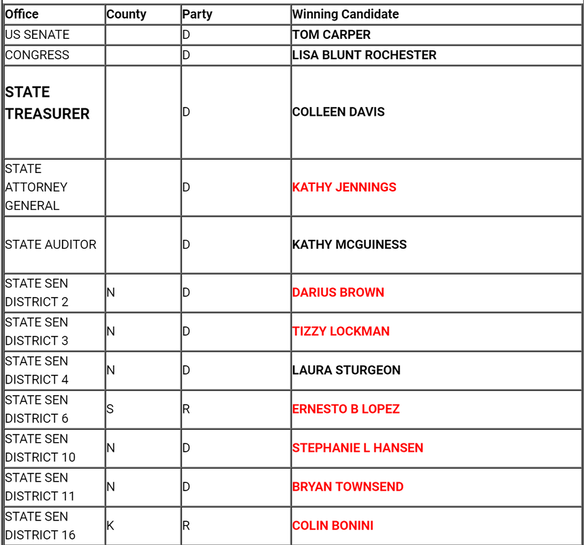
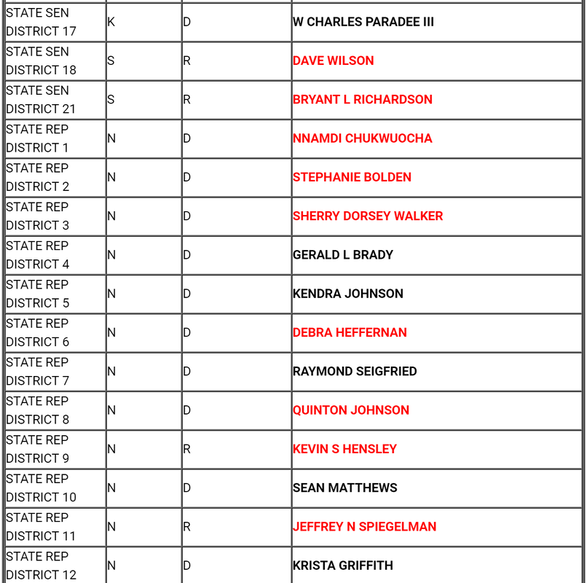
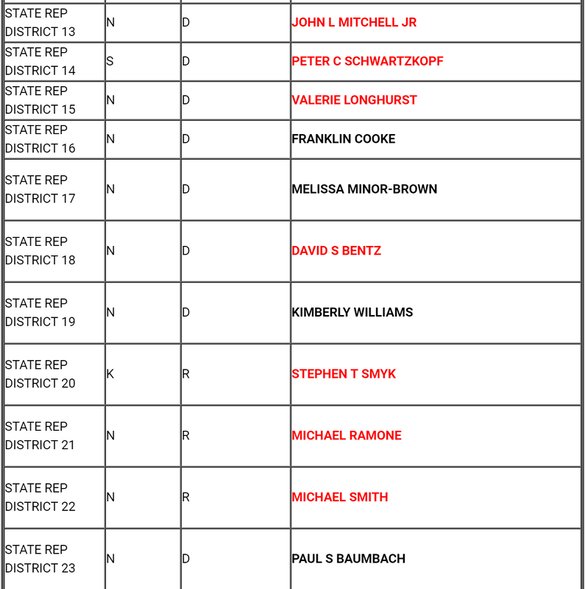
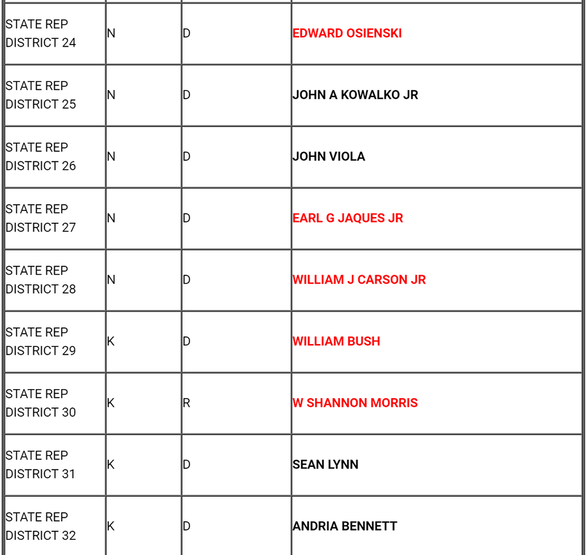
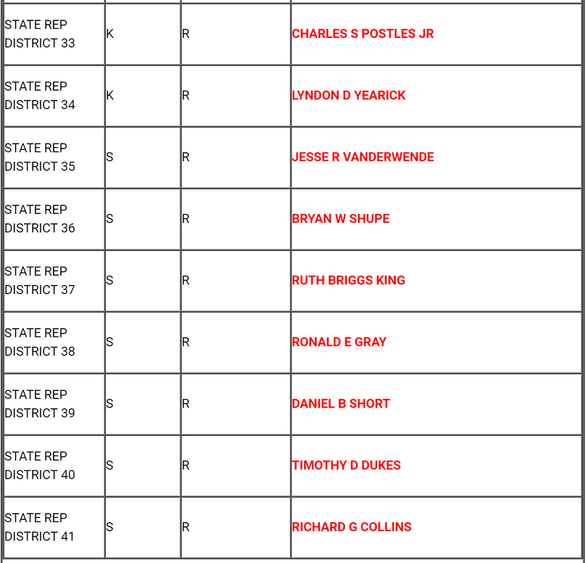
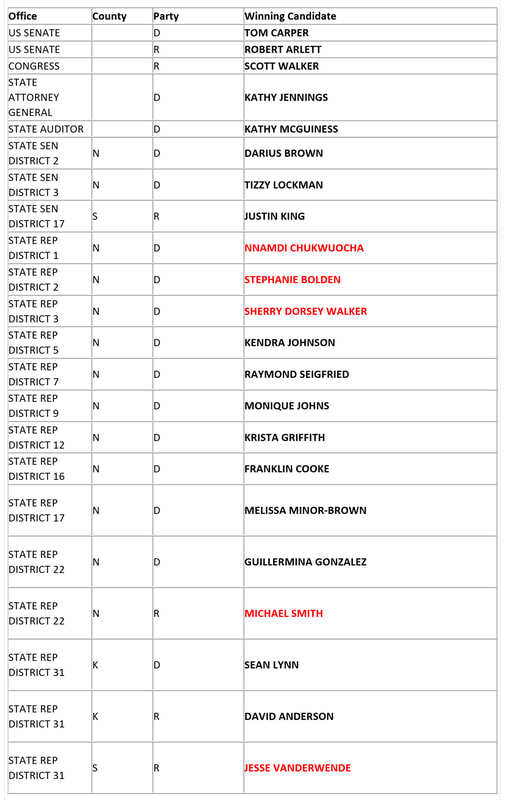
 RSS Feed
RSS Feed